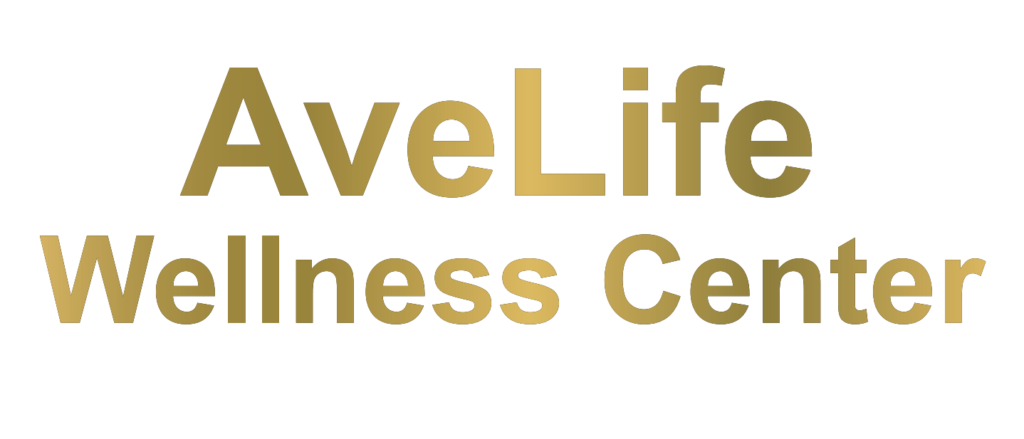consulate with the best dietitian
Start Your Journey to Better Health Today! Book a Consultation


Why Choose Avelife Wellness Centre?
At Avelife Wellness Centre, our expert dietitians are committed to guiding you towards optimal health through personalized nutrition strategies. Here’s how we support your journey:
Expert Dietitians at Avelife Wellness Centre:
Your Partners in Health
Expert Dietitians at Avelife Wellness Centre:
Your Partners in Health
Expert Dietitians at Avelife Wellness Centre:
Your Partners in Health
Expert Dietitians at Avelife Wellness Centre:
Your Partners in Health
Tailored Nutrition Plans
We create customized meal plans to help you achieve your specific health goals, whether it's weight management, blood sugar control, or overall wellness.
Chronic Disease Management
Our nutritional guidance is designed to help you manage chronic conditions such as diabetes, hypertension, kidney issues, and heart disease, improving your quality of life.
Preventive Care
We offer proactive dietary advice to lower your risk of chronic illnesses, focusing on long-term health and vitality.
Sustainable Habits
We emphasize the development of enduring healthy eating habits, steering clear of short-term fixes like fad diets.
Special Dietary Needs
Our expertise includes managing dietary restrictions due to allergies, intolerances, or other health concerns.
At Avelife, we believe that a healthier life starts with informed nutrition choices. Let our dietitians help you pave the way to lasting wellness
How we work
- We empower people with the right and evidence-based knowledge.
- We provide customized diet plans according to your need.
- We offer easy to follow individualized diet plans.
- We offer easy to follow individualized diet plans.
Nutritional care process
Screening and Referral System
• Identify health risk factors.
• Use appropriate tools and methods.
• Build a strong relationship between patients and dieticians.
Nutritional Assessment
• Collect up-to-date information on diet
and health.
• Analyze data with evidence-based standards.
• Diagnose nutritional issues and determine their causes.
• Document all findings carefully.
Nutrition Monitoring and Evaluation
• Track progress regularly.
• Measure how well the nutrition plan is working.
• Evaluate the effectiveness of the intervention.
• Document results and make adjustments as needed
Nutrition Intervention
• Create a detailed plan with specific goals and actions.
• Implement the nutrition plan and deliver care.
• Document all actions and outcomes.
Outcomes Management System
• Monitor the success of the nutrition care plan.
• Evaluate the impact using collected data.
• Analyze and improve the process if results are not as expected.
FAQ
ask us
anything
What am I missing from my diet and where can I get it from?
To determine what might be missing from your diet, we need to review your current eating habits and nutritional intake. People often lack common nutrients including fiber, vitamins (such as Vitamin D or B12), minerals (like calcium or iron), and essential fatty acids.
For instance:
- Fiber: Found in fruits, vegetables, whole grains, and legumes.
- Vitamin D: Available in fatty fish, fortified dairy products, and sunlight exposure.
- Vitamin B12: Present in animal products like meat, dairy, and eggs, or fortified plant-based options.
- Calcium: Sourced from dairy products, leafy greens, and fortified plant-based milks.
- Iron: Found in red meat, poultry, legumes, and fortified cereals.
- Essential Fatty Acids: Obtained from fatty fish, flaxseeds, chia seeds, and walnuts.
A personalized assessment can help pinpoint specific deficiencies and guide you on where to get these nutrients from your diet. I recommend scheduling a detailed consultation to tailor recommendations to your individual needs.
Does dieting mean less food?
Dieting doesn’t always mean eating less food; it’s more about making balanced and nutritious choices. While some diets may involve reducing portion sizes to manage calorie intake, many focus on food quality, ensuring you’re getting essential nutrients. A well-planned diet emphasizes eating a variety of foods that support your health goals, whether that’s weight management, improved energy levels, or overall wellness. It’s important to approach dieting with a focus on healthy, sustainable habits rather than just reducing quantity.
Can you help me with a meal plan that works for my body and goals?
Absolutely, I’d be happy to help create a meal plan tailored to your goals. To provide a personalized plan, I’ll need some information about your specific objectives and preferences. Could you please share details such as:
Your health goals: Are you aiming for weight loss, muscle gain, improved energy, or another specific goal?
Current dietary habits: What does a typical day of eating look like for you?
Any dietary restrictions or preferences: Do you have allergies, intolerances, or specific dietary choices (e.g., vegetarian, gluten-free)?
Activity level: How active are you on a daily basis?
Any medical conditions: Do you have any health conditions that might affect your dietary needs?
Once I have this information, I can create a meal plan that aligns with your goals and supports your overall well-being.
How can I improve my digestive health?
Increase Fiber: Eat more fruits, vegetables, whole grains, and legumes to support healthy digestion.
Stay Hydrated: Drink plenty of water throughout the day to aid digestion and prevent constipation.
Incorporate Probiotics: Add foods like yogurt and kefir to promote a balanced gut microbiome.
Chew Thoroughly: Properly chew your food to facilitate digestion.
Eat Smaller, Frequent Meals: This can help ease digestion and prevent bloating.
Limit Processed Foods: Reduce intake of high-fat, sugary, and processed foods.
Exercise Regularly: Engage in physical activity to support overall digestive health.
Manage Stress: Use techniques like mindfulness or relaxation exercises to reduce stress impacts on digestion.
A personalized assessment can help pinpoint specific guidence. I recommend scheduling a detailed consultation to tailor recommendations to your individual needs.
What are some low-calorie snack options?
For low-calorie snack options, consider the following:
Fresh Fruit: Apples, berries, and oranges are nutrient-dense and low in calories.
Vegetable bowl with seeds: A vibrant mix of fresh, crunchy vegetables including carrot, cucumber, beetroot, and bell pepper, paired with a sprinkle of nutritious seeds.
Greek Yogurt: Choose plain, non-fat Greek yogurt for a high-protein, low-calorie option. Add fresh fruit for flavor.
Air-Popped Popcorn: A whole grain snack that’s low in calories if prepared without excessive butter or oil.
Cottage Cheese: Low-fat cottage cheese is high in protein and can be paired with fruit or veggies.
Hard-Boiled Eggs: A convenient, protein-rich snack that’s low in calories.
Almonds: A small portion of almonds provides healthy fats and protein while keeping calorie intake controlled.
These options can help satisfy hunger while supporting your dietary goals
How can I choose healthy food when eating out or ordering takeout?
When eating out or ordering takeout, you can make healthier choices by following these guidelines:
- Review Menus in Advance: Many restaurants provide nutritional information online. Review menus beforehand to identify healthier options.
- Opt for Lean Proteins: Choose dishes with lean proteins like grilled chicken, fish, or plant-based proteins over fried or breaded options.
- Select Whole Grains: When available, choose whole grain options such as brown rice or whole wheat bread instead of refined grains.
- Increase Vegetables: Aim for meals that include a variety of vegetables. You can request extra vegetables or a side salad to boost your intake.
- Control Portions: Consider splitting a dish with someone or asking for a half portion. You can also box half of your meal to avoid overeating.
- Watch Sauces and Dressings: Ask for dressings and sauces on the side to control the amount used. Opt for lighter dressings or sauces when possible.
- Choose Water: Instead of sugary drinks, choose water, herbal tea, or other low-calorie beverages.
- Be Mindful of Cooking Methods: Favor dishes that are grilled, baked, steamed, or roasted over those that are fried or sautéed in heavy oils.
By making these informed choices, you can enjoy eating out while maintaining a balanced and healthy diet. If you have specific dietary needs or restrictions, let the restaurant staff know so they can accommodate your requests.
Can a well-planned diet help manage and improve symptoms of chronic illnesses?
Yes, a well-planned diet can significantly help manage and improve symptoms of chronic illnesses. Proper nutrition can support overall health, reduce inflammation, and enhance the body’s ability to manage conditions like diabetes, heart disease, and arthritis. By focusing on a balanced diet rich in fruits, vegetables, whole grains, lean proteins, and healthy fats, you can help regulate blood sugar levels, lower cholesterol, and improve heart health. Additionally, specific dietary adjustments tailored to your condition can alleviate symptoms and enhance your quality of life. Working with a dietitian to create a personalized nutrition plan can be highly beneficial in managing chronic illnesses effectively.
How can I balance my diet when I have a busy schedule?
Balance your diet with a busy schedule, start by planning your meals weekly and creating a shopping list. Cook in batches and store meals for easy access throughout the week. Choose quick recipes, like salads or stir-fries, that are easy to prepare. Keep healthy snacks, such as fruits, nuts, or yogurt, readily available. Aim to include protein, whole grains, and vegetables in each meal for balance. Stay hydrated by carrying a water bottle and make smart dining choices when eating out.
What are the benefits of different types of diets (e.g., low-carb, Mediterranean, plant-based)?
Low-Carb Diet: This diet can be effective for weight loss and improving blood sugar control. It often leads to reduced appetite and better management of triglyceride levels and HDL cholesterol.
Mediterranean Diet: Known for its heart-health benefits, this diet can lower the risk of cardiovascular disease and improve overall longevity. It emphasizes whole foods like fruits, vegetables, nuts, and olive oil, which support balanced nutrition and weight management.
Plant-Based Diet: Adopting a plant-based diet can improve heart health, reduce the risk of type 2 diabetes, and support weight management. It’s rich in fiber and antioxidants, which promote digestive health and overall well-being.
How can I address cravings and emotional eating?
To manage cravings and emotional eating, start by identifying triggers through journaling and substituting unhealthy snacks with healthier options. Practice mindful eating to savor your food and address emotions with alternative coping strategies like talking to friends or engaging in hobbies. Ensure your meals are balanced with protein, fats, and fiber, stay hydrated, eat regularly, and manage stress through techniques like exercise and meditation. Seek support from professionals if needed, and prioritize quality sleep to regulate hunger hormones. Patience and gradual changes are key.
Are you or a loved one navigating the challenging journey of cancer treatment? At AveLife Wellness Center, we understand the importance of comprehensive and compassionate care. Our state-of-the-art Wellness Center is dedicated to providing unparalleled support and expertise to guide you through every step of your cancer treatment. Our team of skilled and experienced consultants are passionate about helping you achieve your health goals. Receive personalized nutrition plans tailored to your health, recovery, and lifestyle. Ensuring sustainable and effective results. Our Expert team of consultants will assist you with a wealth of knowledge and a patient-centric approach, we strive to provide personalized treatment plans tailored to your unique needs.
Stay at the forefront of nutritional science with AveLife Wellness Center. We integrate the latest research and evidence-based practices and supplements into our programs, ensuring you receive the most up-to-date and effective guidance, as well as meet your health needs for a better quality of life.
Contact AveLife Wellness Center today to schedule a consultation. Let us be your partner in the fight against cancer, providing expertise, compassion, and unwavering support. Together, we can embark on a journey towards hope, health, and a better quality of Life.

“The doctor of the future will no longer treat the human frame with drugs, but rather will cure and prevent disease with nutrition.” – Thomas Edison. The quote explains the future and importance of nutriments we need not just for healthy body, but to fight disease like cancer too.
We believe in the power of holistic wellness. Our programs go beyond traditional dieting, focusing on nourishing your mind, body, and spirit. Discover a balanced approach to nutrition, exercise, and mindfulness for lasting vitality.
Your journey is unique, and so is our approach. Our dietitians take the time to understand your personal needs, preferences, and challenges. Together, we create a customized roadmap to a healthier, happier you.


